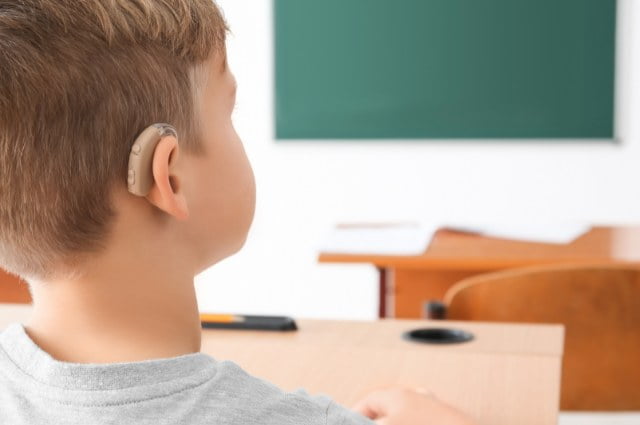Identifying the signs of hearing loss early on is vital for effective intervention and management. This common health issue affects people of all ages and can result from various factors, including exposure to loud noise, age-related degeneration, infections, and genetics.
Those who are having trouble hearing greatly benefit from early detection since it allows for prompt diagnosis and treatment.
In this article, we’ll examine the key signs of hearing loss, emphasizing the importance of awareness so that timely action can be taken to address this condition.
Recognizing the Signs of Hearing Loss
Recognizing the signs of hearing loss holds significant importance as it can have a profound impact on various aspects of daily life. From communication difficulties to mental health implications, untreated hearing loss can significantly reduce an individual’s quality of life.
To improve hearing health, it’s important to understand the many types of hearing loss, their causes, and the consequences of not treating it.
Types of Hearing Loss
Hearing loss is classified into three types: sensorineural, conductive, and mixed.
- Sensorineural Hearing Loss: This type of hearing loss results from injury to the inner ear or the nerves that transport sound impulses to the brain. Sensorineural hearing loss is the most prevalent type, and it is frequently linked to aging, noise exposure, and genetics.
- Conductive Hearing Loss: Issues with the middle or outer ear block sound waves from entering the inner ear, resulting in conductive hearing loss. Ear infections, earwax blockage, anatomical problems, and tumors are all potential causes of conductive hearing loss.
- Mixed Hearing Loss: Mixed hearing loss refers to a combination of sensorineural and conductive hearing loss. This form of hearing loss may develop when an individual sustains injury to the outer or middle ear in addition to obstruction or damage in the inner ear.
Typical Causes of Hearing Loss
- Aging: Over time, the structures inside your ears naturally break down, leading to age-related hearing loss, also known as presbycusis. It often leads to difficulty hearing high-frequency sounds.
- Loud Noises: Extended or frequent exposure to loud noises, like loud music, machinery, or explosions, can result in noise-induced hearing loss. This sort of hearing loss can be avoided by wearing protective headphones and limiting exposure to loud noises.
- Ear Infections: Chronic or repeated ear infections can damage middle ear tissues, resulting in hearing loss. Prompt treatment of ear infections is necessary to prevent long-term hearing problems.
- Trauma or Injury: Depending on the extent of the damage, head injuries or ear trauma can cause either a temporary or permanent loss of hearing.
- Specific Medications: Chemotherapy drugs, some antibiotics, and large doses of aspirin, can have ototoxic effects and result in hearing loss.
- Genetic Factors: Some individuals may inherit certain genetic mutations that predispose them to hearing loss. These genetic factors can contribute to both hereditary and later-onset hearing loss.
Rate of Hearing Loss
People of all ages are affected by hearing loss and is a worldwide concern. According to the World Health Organization (WHO), approximately 5% of people worldwide have disabling hearing loss, and this number is expected to increase to over 700 million by 2050.
Statistics by Age
The most widespread form of hearing loss is age-related hearing loss, which becomes more common as people age. Research from the National Institute on Deafness and Other Communication Disorders (NIDCD) indicates that one in three people between 65 and 74 years old suffers from hearing loss. In adults 75 years of age and above, the rate approaches 50%.

Gender Differences
Research suggests that men are more likely to experience hearing loss compared to women. However, the reasons for this gender disparity are not fully understood and the impact of sex hormones on hearing health requires further investigation.
Socioeconomic Impact
Hearing loss can have significant socioeconomic implications. It can impact an individual’s education, employment opportunities, and overall well-being. Inequalities in access to hearing healthcare services, particularly in low-income countries, can worsen the negative socioeconomic consequences of untreated hearing loss.
See Our Top Pick For Better Hearing
Age-Related Hearing Loss
Presbycusis, or age-related hearing loss, is a typical aspect of the aging process. It typically occurs gradually over time and primarily affects the ability to hear high-frequency sounds.
Description and Causes
Age-related hearing loss is mainly caused by changes in the inner ear structures, including the loss of hair cells and changes to the blood supply. It can be influenced by genetics, noise exposure, and health disorders like diabetes and cardiovascular disease.
Progression and Effects
Age-related hearing loss typically develops over several years slowly and steadily. Initially, individuals may struggle to hear high-pitched sounds, such as birdsong or doorbells.
As the condition advances, understanding speech, particularly in noisy environments, becomes increasingly challenging. Left untreated, it can lead to frustration, social isolation, and a lower quality of life.
Managing Age-Related Hearing Loss
While age-related hearing loss is irreversible, there are various management options available to improve communication and quality of life. Hearing aids, assistive listening devices, and cochlear implants are among the technologies that can help individuals with age-related hearing loss regain some of their hearing abilities.

It is essential to seek professional evaluation and guidance to determine the most suitable treatment and management options.
Signs of Hearing Loss in Children
People of all ages, including children, can suffer from hearing loss. Early detection of hearing loss in children is critical to providing adequate treatment and support for their speech and language development.
Inattention and Improper Reactions
Kids who have hearing loss may come across as easily distracted or inattentive. They might not follow conversations in noisy situations or react inappropriately to spoken instructions.
Chronic Ear Infections
Children who have chronic or recurrent ear infections may have hearing loss. Temporary hearing loss due to an ear infection can have lasting consequences on language and speech development if not treated.
Milestone Delays
If hearing loss is suspected in a child, parents and caregivers must monitor the child’s development and consult with medical professionals.
Impaired Academic Performance
Hearing loss can significantly impact a child’s academic performance. Difficulties in hearing and understanding instructions in the classroom can lead to lower academic achievement and prevent social interactions with peers.
Signs of Hearing Loss in Adults

Hearing loss in adults can have a profound impact on daily life and communication. It’s essential to identify the warning signs of hearing loss to find the right support and enhance general well-being.
Gradual or Sudden Loss of Hearing
Adults with hearing loss may experience a gradual or sudden decline in their hearing abilities. They may notice that they are having difficulty understanding conversations, particularly in noisy environments. Sudden hearing loss requires immediate medical attention.
Muffled or Distorted Sounds
Those with hearing loss often describe sounds as muffled or distorted. They may have difficulty distinguishing between similar speech sounds, which can lead to confusion in understanding words and sentences.
Difficulty Following Conversations
Individuals with hearing loss may struggle to follow conversations, especially when multiple people are speaking or in environments with background noise. They may frequently ask others to repeat themselves or rely on visual cues to understand what is being said.
Asking for Repetition
Repeatedly asking others to repeat themselves or making frequent requests for clarification can be a sign of hearing loss. When people are unable to hear or understand what others are saying, they might feel embarrassed or irritated.
Ringing or Buzzing Sensation (Tinnitus)
Tinnitus is a common symptom associated with hearing loss. It causes a ringing, buzzing, or hissing sound in the ears. While tinnitus can occur independently, it often accompanies hearing loss and can intensify the challenges faced by individuals with hearing impairments.
Early Warning Signs
Being aware of early warning signs can help individuals recognize the presence of hearing loss and seek appropriate intervention promptly.
Misunderstanding Spoken Words
Difficulties in understanding spoken words, particularly in noisy environments, can indicate hearing loss. Contacting a specialist for a full hearing evaluation is critical for determining the root cause of communication issues.
Increasing Volume of Electronic Devices
If you find yourself frequently needing to increase the volume on electronic devices, such as the television, radio, or phone, it may be a sign of hearing loss. Excessive volume requirements are often an indication that sounds are not being perceived at normal levels.
Withdrawing from Social Activities
Individuals with untreated hearing loss may withdraw from social activities or avoid situations where hearing and communication are challenging. This withdrawal can result from the frustration and stress associated with difficulty understanding conversations or fear of embarrassment.
Feeling Fatigued or Stressed in Noisy Environments
Difficulty hearing and understanding in noisy environments can be mentally and physically exhausting. Struggling to follow conversations in restaurants, parties, or crowded spaces can lead to increased stress levels, fatigue, and decreased enjoyment of social interactions.
The Impact of Untreated Hearing Loss
The effects of untreated hearing loss on a person’s health and happiness can be devastating. Understanding these implications emphasizes the significance of obtaining early intervention and therapy.
Increased Risk of Cognitive Decline
According to research, untreated hearing loss is strongly linked to cognitive decline, including an elevated risk of dementia and memory loss.
Although the exact processes underlying this link are still being studied, hearing loss may increase mental strain during communication and decrease cognitive stimulation, which could lead to cognitive deterioration.
Strained Relationships
Hearing loss can strain relationships, both personal and professional. Communication difficulties and misunderstandings can lead to frustration, resentment, and decreased intimacy. The strain on relationships can be reduced through effective communication strategies and the use of assistive listening devices.
Depression and Isolation
Untreated hearing loss is associated with an increased risk of depression and social isolation. The challenges faced in daily communication can lead to feelings of loneliness, frustration, and low self-esteem. Seeking appropriate treatment can help alleviate these negative emotional consequences and improve overall mental well-being.
Decreased Job Performance
Hearing loss can impact job performance, particularly in occupations that require frequent communication or working in noisy environments. Difficulties in hearing instructions, participating in meetings, or interacting with colleagues can interfere with productivity and career advancement.

Using assistive listening devices and requesting job-related modifications can help people with hearing loss thrive in their careers.
Safety Risks
Untreated hearing loss can pose safety risks in various situations. Individuals may have difficulty hearing warning signals, and alarms, or approaching vehicles, increasing the risk of accidents and injuries. Seeking treatment for hearing loss can improve safety awareness and prevent potential hazards.
Conclusion
Understanding the signs of hearing loss is critical for early intervention, appropriate treatment, and improved quality of life. Knowing the different types of hearing loss, their causes, and the impact of untreated hearing loss can empower individuals to take proactive steps in prioritizing their hearing health.
Regular hearing assessments, effective communication strategies, and the use of assistive listening devices can significantly enhance communication abilities and overall well-being.











